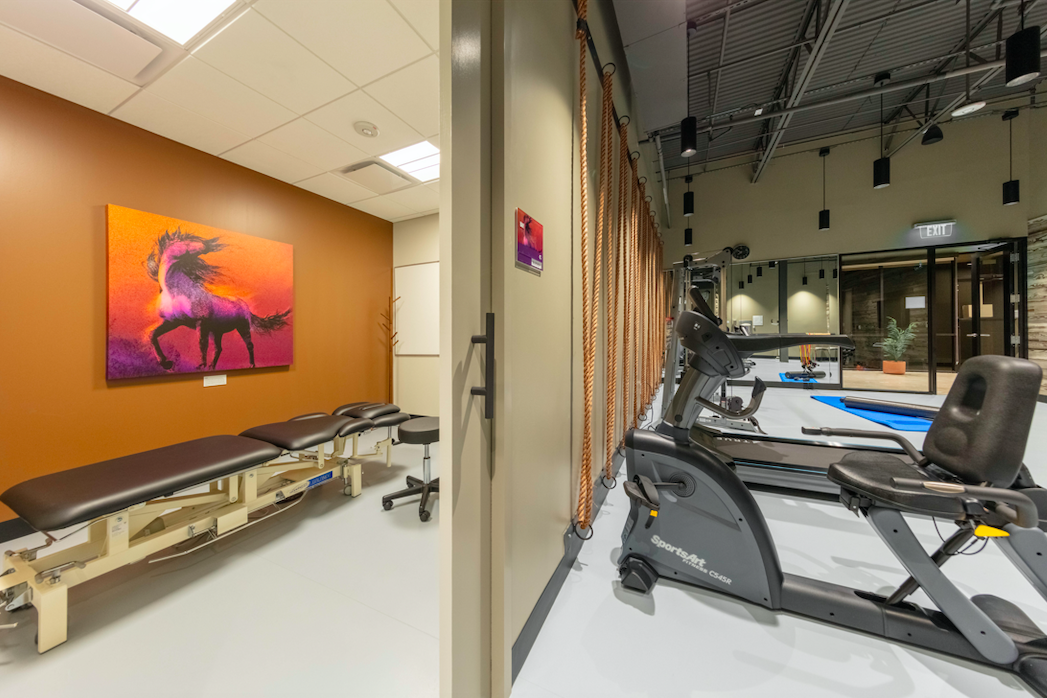Amazon is expanding its partnership with Crossover Health in DFW, opening four new neighborhood health centers in the region. The value-based model is directly contracted between Amazon and Crossover, cutting health insurance companies out of the arrangement entirely.
As healthcare costs continue to rise (topping $20,000 for a family in 2020), employers have become more active in looking for healthcare solutions that maintain quality while reducing costs. Employers subsidize 49 percent of the country’s healthcare, according to the Kaiser Family Foundation. Healthcare costs are increasing faster than wages, putting added pressure on employers and their employees. Partnering with providers that perform value-based care is often part of that process.
Amazon still uses an insurance company to build out the network beyond primary care but pays Crossover directly on a per-member basis to provide primary care. This means the clinics are not incentivized to work through as many patients as possible and spend more time with each patient and provide wrap-around care. They are also not incentivized to perform unnecessary care, as they are not being paid per service, which can reduce overall costs. “Amazon expects value because they run on very tight margins,” says Dr. Scott Shreeve, CEO, and founder of Crossover Health. “They still wanting to provide the very best benefits to their employees, because they figured out that their employees are their most valuable asset.”
The move will give 24,000 Amazon employees access to the clinics, with 80 percent of the region’s Amazon workers within 10 miles of a Crossover clinic. The original clinic launched in Las Colinas in June, and the partnership is adding four more in Fort Worth, Garland, Grapevine, and Duncanville. Since the June launch, 2,200 employees have visited the clinic for 2,500 visits, giving the experience a 90 percent satisfaction rating.
Silicon Valley-based Crossover Health has positioned itself as a direct to employer provider, giving patients access to comprehensive care that includes physical therapy, chiropractic care, mental health, as well as primary care, and prescriptions. The provider has a team of professionals that work with the patient, creating a connection that isn’t often present via normal telehealth, where a patient might be paired with a random provider. Crossover has partnered with Facebook and Microsoft in the past, but Dallas was its first partnership with Amazon. “As we like to say, it is what healthcare should be. It shouldn’t be so hard. You should be able to connect to a consistent care team that knows who you are.”
Amazon gives its employees health benefits on the first day of employment and has hundreds of thousands of employees across the country. When it launched during the pandemic, they found that Crossover was well-positioned to practice virtual care. Patients have been using remote care about 30 percent of the time, and patients have been impressed with the short wait times and the relationship with their provider, says Derek Rubino, senior program manager of workplace health & safety special programs at Amazon.”When we launched during the pandemic, I think everybody was not sure how it would go,” Rubino says. “The positive response has been great. Now it’s a matter of advertising and campaigning and making sure people know it’s there.”
Amazon plans its expansion based on where its employees live, placing the centers in those areas rather than near the warehouse, office, or distribution center. They have extended hours that cater to the workers’ shifts, which can begin and end at odd hours. Dallas was targeted as a place to launch the centers because of the number of Amazon employees in the region and the fact that there are many medically underserved areas. “The region, in general, has poor access to health care, and that can just mean fewer providers per capita,” Rubino says. “So we looked at where we were we had a combination of those factors together.”
Even with the quick expansion in North Texas and beyond, Crossover hasn’t had any trouble finding enough providers and staff to run the clinics. Physicians find the direct primary care model attractive, as the patient panel is smaller than an average primary care physician, and they can spend more time with their patients. But via technology and leaning on other providers, Crossover providers can see between 1,200 and 2,000 patients, rather than the 400 or so that most direct primary care or concierge medicine physicians see. ” We have found that providers love to practice in this model,” Shreeve says. “They love the care team. They love the technology. They love the time they get with the members, the philosophy, and the culture.”
Amazon has plans to further expand the health centers with Crossover in Detroit, Louisville, Phoenix, and San Bernadino for December. Crossover is also looking to partner with other employers here in DFW to provide similar care. ” I think there’s a lot of opportunities to go fast in Dallas with employers to expand and show off with this model can do,” Shreeve says.





